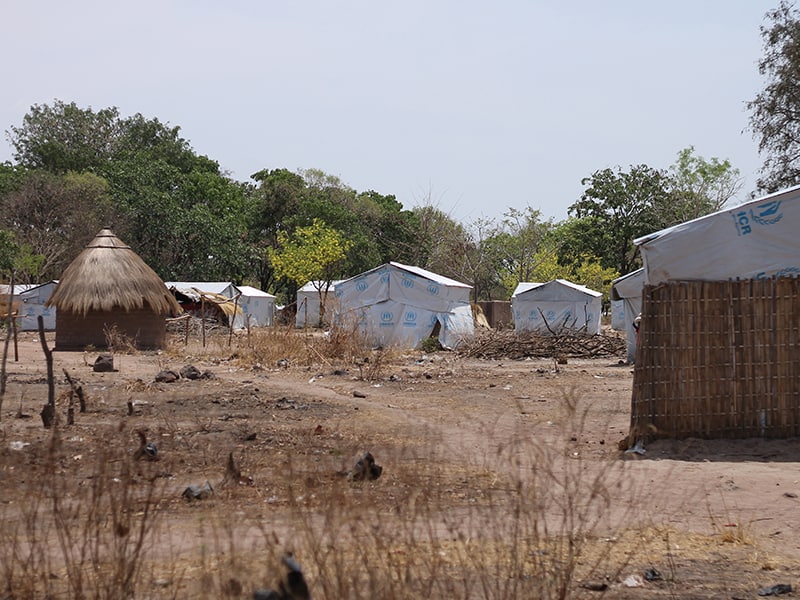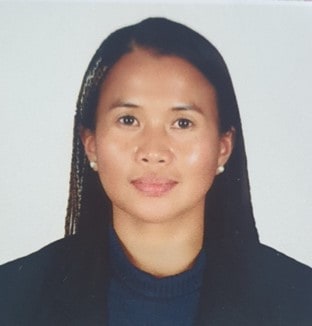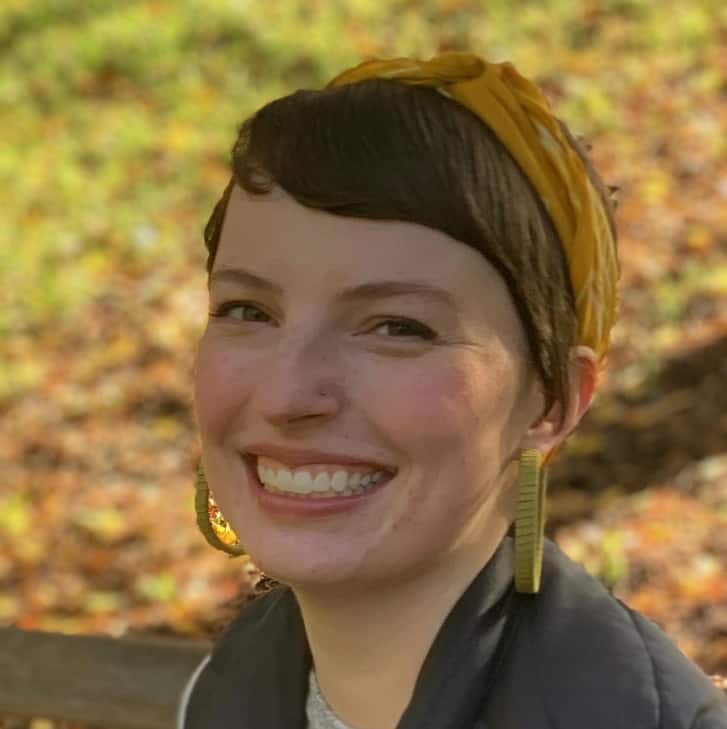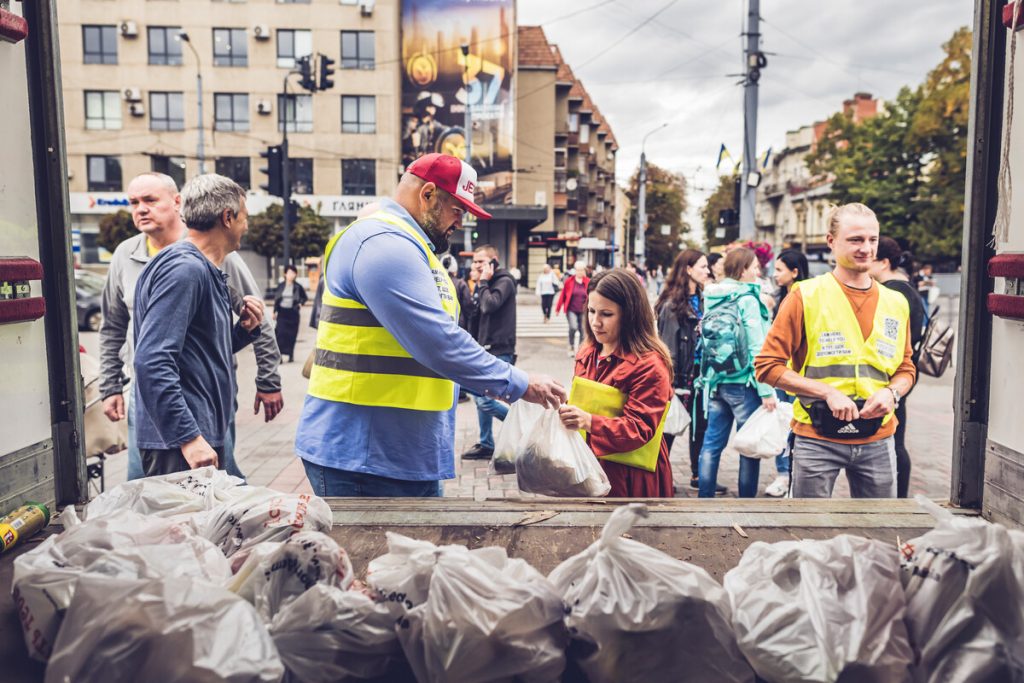Posts Tagged ‘Chad’
How is World Relief Helping Refugees in Chad?
We cannot let them go hungry during their Eid. We cannot see them crying when it is supposed to be a celebration of triumph.
Did you know, the country of Chad hosts the second-highest number of refugees per capita in Africa? It’s one of the reasons we opened a new office in Chad earlier this year. And yet, we couldn’t have foreseen that the recent conflict in Sudan would push more than 179,000 new refugees into Chad. We have been placed for such a time as this.
Prior to this conflict, Chad had already welcomed nearly 600,000 refugees including individuals from Sudan, the Central African Republic, Niger and Cameroon. As one of the poorest nations in the world, Chad does not have the resources to handle the mass influx of refugees from Sudan.
An urgent humanitarian crisis is rapidly unfolding at the Chadian border. Like you, our hearts are broken and we’re ready to respond. Today, we’re sharing an update on the evolving crisis and how you can help refugees in Chad.
Who are the refugees arriving in Chad?
The current influx of refugees are from Sudan, specifically West and Central Darfur. Most of those arriving are women and children as it is almost impossible for men from certain tribes in West and Central Darfur to make the journey due to the targeting of males from different tribes.
What makes this situation especially unique is that World Relief has a personal connection to many of the refugees entering Chad. These are families and individuals that we’ve served through our office in Sudan. Our teams have known these people for a long time and have built relationships with them. They have walked alongside and witnessed their Darfurian brothers and sisters regrow decimated communities and rebuild livelihoods. The response to this current crisis is deeply personal as much as it is professional.
Many refugees arriving in Chad are doing so without food, water, shelter and other protection measures. Many will face hunger, thirst, exploitation or even death. There is an immediate and urgent need to respond in order to save the lives of the people who are facing some of the most dire circumstances imaginable.

Tragedy During the Holiday Season
To make things even more challenging, many Sudanese people find themselves away from home, in a foreign land, during the coming Eid-al-Adha — one of the most significant holidays celebrated in Islam.
The word Eid, which means “feast or festival” is used to refer to two major holidays. For our Muslim brothers and sisters, Eid al-Adha, or the “Feast of Sacrifice,” falls on June 28th this year. The holiday honors Abraham’s willingness to sacrifice his son in obedience to God’s command and is a time when many Muslims give generously to help those in need. Today, they should be celebrating with family, friends, neighbors and relatives. Instead, they have been displaced in a foreign land.
Despite religious differences, as Christians, we are commanded to take care of our fellow human beings. As Matthew 25:40 says (NIV), “Truly I tell you, whatever you did for one of the least of these brothers and sisters of mine, you did for me.”
We pray for our brothers and sisters who are experiencing life’s most heartbreaking circumstances. May they feel seen, heard and protected during the Eid and throughout their journey in refugee camps.
How You Can Help Refugees in Chad
An emergency response team composed of World Relief staff from around the world arrived in Chad on June 12, 2023 to support World Relief’s Chad office in a cross-border refugee response. There are reports of mass casualties and bodies waiting to be buried along the border. A horrific and heartbreaking scene.
Crisis response is a tangible way for us to extend the love of Christ to those who are suffering in their greatest time of need. We cannot control when a crisis strikes. But when it does, God calls you and me to respond with compassion – wherever and whenever help is needed most.
We invite you to join us in prayer and by giving to our response effort in Sudan and Chad. World Relief is aiming to raise $400,000 for this response. One hundred percent of funds raised will be used for direct aid for vulnerable families impacted by this crisis.
With your help:
- $10 can provide water for a family
- $20 can provide clothes for a child
- $30 can provide meals for a family for a day
- $75 can provide blankets and a solar lamp
Your generosity will go directly to teams on the ground in Chad to provide a safe haven for Sudanese refugees with access to food, clean water, basic necessities and temporary shelter. It will also help families pay for burial expenses for the loved ones they’ve lost.
For nearly 80 years, World Relief has been responding to crises and disasters, providing emergency relief and building resilience where and when it’s needed most. It is our desire and hope to see a world free from suffering and injustice.

Carrell Cataya Magno is Protection Program Manager at World Relief Sudan.
Carrell has nearly 20 years of experience working in complex humanitarian environments. She has background in general protection, human rights, violence prevention, community empowerment and coordination of humanitarian response. Prior to joining World Relief, she worked with Nonviolent Peaceforce in South Sudan for more than six years. She also worked with a number of NGOs in the Mindanao region of the Philippines, and she has extensive experience working in remote locations. Carrell has demonstrated success in negotiating with armed actors at the local level for access for humanitarian workers (both her own team and others) and protection of civilians’ rights. Carrell holds a Bachelor of Arts in Community Development from the University of the Philippines and a diploma in Sustainable Development Studies from Mindanao State University.
5 Things You Need to Know about Chad
Chad is home to one of the most diverse and vibrant people groups on the planet. The country also faces multiple humanitarian crises including political uncertainty, food insecurity and climate instability.
Over five million people are food insecure, and nearly 1.7 million suffer from recurrent cases of preventable diseases. What’s more, Chad plays host to thousands of refugees and internally displaced people — a displacement crisis that The United Nations High Commissioner for Refugees (UNHCR) says tends to go underfunded, in spite of the country’s evident need.
That’s why this year, World Relief is expanding its programming into Chad, compelled by our faith to go further and reach deeper to respond to the needs of the most vulnerable.
While Western news and media outlets often overlook stories from this Central African country, we believe it’s essential for you to get to know the people and the places where World Relief operates. With that in mind, here are 5 things you need to know about Chad, its people and its history.
1. Chad is one of the world’s most ethnically and linguistically diverse countries.
Home to over 200 ethnic groups who speak over 100 languages, it’s little wonder Chad earned the moniker “Babel Tower of the World.” The country’s two official languages are Arabic and French, echoing the country’s not-so-distant colonial past.
About 75% of Chad’s population live in rural areas and belong to a nomadic or pastoral tribe, while others primarily live in and around the capital city of N’Djamena.
2. Lake Chad, a primary ecosystem and food source, has lost 90% of its original surface area and counting.
Many people depend on Lake Chad for fishing, farming and as a watering source for herds of cattle and goats. Yet because of climate change, the lake’s ability to serve as a sufficient resource shrinks yearly, contributing to conflict over access to its shores.
Extreme weather patterns in the region prohibit the primarily agrarian society from reaping sufficient harvests year after year. The length of “lean seasons,” the time before crops are ready to harvest, also continues to grow.
Faced with such volatile weather and arid land, some Chadians are now partnering with scientists to integrate indigenous farming methods and rehabilitate the dry land.
Hindou Aoumarou Ibrahim, a Chadian activist and President of the Association for Indigenous Women and Peoples of Chad, advocates for the importance of using traditional knowledge to combat the effects of climate change in Chad.
3. Chad hosts over 555,000 refugees and over 400,000 internally displaced persons (IDPs).
Despite Chad’s turbulent government, its doors remain open to refugees from South Sudan, Cameroon, the Central African Republic (CAR) and Nigeria, all bordering countries impacted by violence and climate change.
For example, Chad shares a border with Sudan’s Darfur region. Though not as prevalent in the news today, Darfur saw high rates of conflict in the early 2000s, which contributed to large numbers of refugees fleeing across its border to Chad.
4. As of 2020, the WHO reports a shortage of medical professionals in Chad — less than one medical doctor for every 10,000 people.
Similar to many countries during the height of the COVID-19 pandemic, Chad found its health system even more constrained by a shortage of doctors and a rising number of cases mid-2020. Chad also contended with a need for essential medical equipment, such as ventilators, medicines and vaccines.
Yet months after the pandemic began, the UN developed an innovative partnership with troubadours, or traditional storytellers, to deliver and communicate information about the virus to Chad’s remote and nomadic communities — in much the same way World Relief equipped church and community leaders in places like Rwanda. These troubadours, along with community-selected health workers, traveled between communities and, instead of news or songs, shared critical health safety measures (i.e. social distancing) to help stop COVID from spreading.
5. Chad ranks 187th out of 189 countries on the Human Development Index, and 42% of the country lives below the national poverty line.
A land-locked country of 16.8 million, Chad ranks among the poorest countries in the world today. More than 6.1 million Chadians require humanitarian assistance as of 2022, almost one-third of the country’s population.
The need in Chad is two-fold: immediate emergency responses and capacity building for holistic, long-term sustainability and ministry.
What is World Relief doing?
In 2023, World Relief will open a new office in Chad.
The Southern portion of Chad — a Christian-majority region where population density is high and humanitarian actors are few — is ideal for World Relief’s holistic ministry model. Additionally, the number of Christian humanitarian agencies who work closely with churches in the area is limited and competition for funding is low. Existing local, faith-based NGOs are in need of capacity building from an international Christian NGO like World Relief to scale and expand impact.
At World Relief, our mission calls us to listen and walk alongside the men, women and children of Chad. As our world continues to change, we must respond in new ways and go further than ever.

Meghan Gallagher is a Seattle-based freelance content writer and strategist. She has a B.S. in Marketing Management and a background in digital marketing for healthcare, nonprofit, and higher education organizations. When she’s not writing, you can find her working as a local bookseller and enjoying all the Seattle area has to offer.
5 Things You Need to Know about Chad
Chad is home to one of the most diverse and vibrant people groups on the planet. The country also faces multiple humanitarian crises including political uncertainty, food insecurity and climate instability.
Over five million people are food insecure, and nearly 1.7 million suffer from recurrent cases of preventable diseases. What’s more, Chad plays host to thousands of refugees and internally displaced people — a displacement crisis that The United Nations High Commissioner for Refugees (UNHCR) says tends to go underfunded, in spite of the country’s evident need.
That’s why this year, World Relief is expanding its programming into Chad, compelled by our faith to go further and reach deeper to respond to the needs of the most vulnerable.
While Western news and media outlets often overlook stories from this Central African country, we believe it’s essential for you to get to know the people and the places where World Relief operates. With that in mind, here are 5 things you need to know about Chad, its people and its history.
1. Chad is one of the world’s most ethnically and linguistically diverse countries.
Home to over 200 ethnic groups who speak over 100 languages, it’s little wonder Chad earned the moniker “Babel Tower of the World.” The country’s two official languages are Arabic and French, echoing the country’s not-so-distant colonial past.
About 75% of Chad’s population live in rural areas and belong to a nomadic or pastoral tribe, while others primarily live in and around the capital city of N’Djamena.
2. Lake Chad, a primary ecosystem and food source, has lost 90% of its original surface area and counting.
Many people depend on Lake Chad for fishing, farming and as a watering source for herds of cattle and goats. Yet because of climate change, the lake’s ability to serve as a sufficient resource shrinks yearly, contributing to conflict over access to its shores.
Extreme weather patterns in the region prohibit the primarily agrarian society from reaping sufficient harvests year after year. The length of “lean seasons,” the time before crops are ready to harvest, also continues to grow.
Faced with such volatile weather and arid land, some Chadians are now partnering with scientists to integrate indigenous farming methods and rehabilitate the dry land.
Hindou Aoumarou Ibrahim, a Chadian activist and President of the Association for Indigenous Women and Peoples of Chad, advocates for the importance of using traditional knowledge to combat the effects of climate change in Chad.
3. Chad hosts over 555,000 refugees and over 400,000 internally displaced persons (IDPs).
Despite Chad’s turbulent government, its doors remain open to refugees from South Sudan, Cameroon, the Central African Republic (CAR) and Nigeria, all bordering countries impacted by violence and climate change.
For example, Chad shares a border with Sudan’s Darfur region. Though not as prevalent in the news today, Darfur saw high rates of conflict in the early 2000s, which contributed to large numbers of refugees fleeing across its border to Chad.
4. As of 2020, the WHO reports a shortage of medical professionals in Chad — less than one medical doctor for every 10,000 people.
Similar to many countries during the height of the COVID-19 pandemic, Chad found its health system even more constrained by a shortage of doctors and a rising number of cases mid-2020. Chad also contended with a need for essential medical equipment, such as ventilators, medicines and vaccines.
Yet months after the pandemic began, the UN developed an innovative partnership with troubadours, or traditional storytellers, to deliver and communicate information about the virus to Chad’s remote and nomadic communities — in much the same way World Relief equipped church and community leaders in places like Rwanda. These troubadours, along with community-selected health workers, traveled between communities and, instead of news or songs, shared critical health safety measures (i.e. social distancing) to help stop COVID from spreading.
5. Chad ranks 187th out of 189 countries on the Human Development Index, and 42% of the country lives below the national poverty line.
A land-locked country of 16.8 million, Chad ranks among the poorest countries in the world today. More than 6.1 million Chadians require humanitarian assistance as of 2022, almost one-third of the country’s population.
The need in Chad is two-fold: immediate emergency responses and capacity building for holistic, long-term sustainability and ministry.
What is World Relief doing?
In 2023, World Relief will open a new office in Chad.
The Southern portion of Chad — a Christian-majority region where population density is high and humanitarian actors are few — is ideal for World Relief’s holistic ministry model. Additionally, the number of Christian humanitarian agencies who work closely with churches in the area is limited and competition for funding is low. Existing local, faith-based NGOs are in need of capacity building from an international Christian NGO like World Relief to scale and expand impact.
At World Relief, our mission calls us to listen and walk alongside the men, women and children of Chad. As our world continues to change, we must respond in new ways and go further than ever.

Meghan Gallagher is a Seattle-based freelance content writer and strategist. She has a B.S. in Marketing Management and a background in digital marketing for healthcare, nonprofit, and higher education organizations. When she’s not writing, you can find her working as a local bookseller and enjoying all the Seattle area has to offer.
Go Far, Go Deep, Go Together in 2023
When I was a student at Fuller Theological Seminary, one of my professors, Bryant Myers, taught me that, “At the heart of poverty is broken relationships.”
Years later, that teaching shapes the way I see the world and the way I lead at World Relief.
Myers taught that before the fall, God established five foundational relationships that each person was created to live within: relationship with God, with self, with others, with community and with creation.
When these relationships function properly, they make way for human flourishing. But when one or more of them is broken, they precipitate all types of poverty in our lives and in the lives of others:
- Broken relationships with others can cause conflicts.
- Broken relationships with creation deprive us of God’s life-giving intention for the earth — that everyone has access to beauty and sustainable food, water and resources.
- Broken relationships with ourselves mar our ability to see the potential for change and transformation.
- And broken relationships with God keep us from experiencing grace and restoration.
Current Crises, Broken Relationships
Over the last year, we’ve talked at length about how COVID, conflict and climate change have converged to create the worst humanitarian crisis we’ve seen in decades.
In these crises, we see evidence of broken relationships. War displaces families from their homes. Communities suffer the effects of natural disasters. Women and girls face increased violence and discrimination. Our own brokenness often leaves us feeling hopeless and unable to engage, while pride and division prevent us from seeking collaborative solutions to these complex problems.
It’s clear that the old paradigms of providing humanitarian aid may not be enough. If we want to move forward, we must embrace a new vision. We must remember that a flourishing world is a connected world, and it takes all of us to create change that lasts.
At World Relief, we’ve long been committed to addressing our world’s problems holistically, making way for people and communities to restore relationships and flourish. For nearly 80 years, we’ve been moving with local churches and community leaders as they create lasting change, and many of you have moved right along with us.
As we settle into the new year, the problems facing us in 2022 have not been left behind. But thanks to the generosity of people like you, World Relief is poised and ready to meet the emerging needs of our world. Together, we will go far, go deep and go together in 2023, and I’m eager to tell you how.
Go Far: Ukraine, Chad and Ethiopia
Since February 2022, World Relief has partnered with local churches and Christian agencies in Ukraine, responding to the devastating war that continues to unfold. This summer, it became evident that a long-term presence in Ukraine was necessary to meet the immense needs that will extend for years to come.

World Relief has decades of experience working in current and post-conflict settings. Our team in Ukraine will build upon our technical experience to increase the capacity of local churches to meet the physical and spiritual needs of those impacted by the war.
In Chad, we’ve also found an opportunity to strengthen local churches to meet the needs of the most vulnerable.
The Southern portion of Chad is a Christian-majority region where population density is high and humanitarian actors are few. Existing local, faith-based NGOs are in need of capacity-building support from an international Christian NGO like World Relief to scale and expand impact.
We expect the Chad office to open in early 2023, and we will also be moving forward with plans to open an office in Ethiopia as well.
Go Deep: Mental Health Counseling and Disability Inclusion
While others might focus on one area of intervention or only provide immediate assistance, we remain committed to responding to needs holistically with proven solutions that last.
For refugees and other immigrants, this means addressing the profound physical and psychological trauma many endure when they are forced to leave their homes and rebuild their lives in an entirely new culture.
World Relief offices in Chicagoland and North Carolina have been providing mental health counseling to refugees for more than 20 years. In 2023, we’re expanding this service line to more offices to better meet the needs of those experiencing displacement.
Our commitment to thriving societies is also reflected in the depth of our disability-inclusive programming. People with disabilities represent some of the most marginalized, making up 20% of the world’s poorest in developing countries.
World Relief Malawi piloted disability-inclusive programming in 2019, reaching more than 400 people through church-led initiatives in the first two years. Since then, we have expanded disability-inclusive programming to church networks in Burundi and Rwanda, and are making plans to train churches in six more countries across the globe.
Go Together: Creating Lasting Change
At the heart of our commitment to going further and deeper is our commitment to going together, equipping the individual and collective expressions of the church to live out their call to serve in both word and deed.
Our newly formed Church and Community Engagement Team is working hard to engage more people and more congregations in creating welcoming communities for immigrants in the U.S.
Globally, our Outreach Group Initiative continues to equip volunteers to meet the spiritual and physical needs of their neighbors, while savings groups are bringing people together, providing support and friendship as communities are transformed economically.
And then there’s you — as you move forward this new year, my prayer is that you would see yourself as part of a global movement that is creating change across the globe. I pray you’d find ways to strengthen the relational connections in your own life so the ripple effects of lasting change can continue to expand.
The challenges we face are great. But, by the power of Jesus, hope is even greater when we go forward together.
Do you want to be a part of this global movement? You can make a difference in 2023 by joining World Relief. Learn more and give today.

Myal Greene has a deep desire to see churches worldwide equipped, empowered, and engaged in meeting the needs of vulnerable families in their communities. In 2021, he became President and CEO after serving for fourteen years with the organization. While living in Rwanda for eight years, he developed World Relief’s innovative church-based programming model that is currently used in nine countries. He also spent six years in leadership roles within the international programs division. He has previous experience working with the U.S. Government. He holds B.S. in Finance from Lehigh University and an M.A. from Fuller Theological Seminary in Global Leadership. He and his wife Sharon and have three children.




